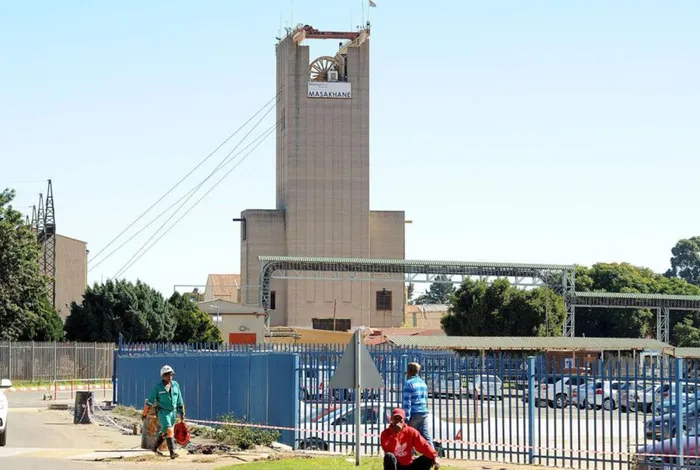
Sibanye Stillwater is in the line of fire after Appian Capital, the London-based investment firm, which has interests in the two Brazilian mines, filed a claim against the mining firm’s decision to terminate the deal, image, Matthews Baloyi (ANA).
SIBANYE-Stillwater, rocked by ongoing strike action at its South African gold mines and sharp criticism from the government over its handling of the labour unrest, said yesterday it would defend itself against a claim suit in the UK High Court over termination of its $1.2 billion (R19bn) deal to acquire two Brazilian mines.
The two Brazilian properties, the Santa Rita nickel and Serrote copper mines, would have further enhanced Sibanye’s portfolio.
Appian Capital, the London-based investment firm, has interests in the two Brazilian mines and has filed a claim against Sibanye’s decision to terminate the deal.
The claim worsened Sibanye’s streak of recent troubled stakeholder-relations incidents emanating from the company’s failure to find a speedy solution to strikes dogging its gold mining operations for nearly three months in South Africa.
Now the company has to defend itself against the latest claim suit in London, although its investors on the JSE appeared unnerved by the latest incident.
“Sibanye-Stillwater will defend the claim,” the miner said on Monday, highlighting that it had received notification of Appian’s decision to institute legal proceedings against its decision on Friday.
After announcement of the UK court claim, shares in Sibanye traded 1.98 percent stronger at R51.41 per share in afternoon trade on the JSE. Its peers, Impala Platinum and Anglo Platinum, traded 0.05 percent and 0.76 percent weaker, respectively.
A dispute has ensued between the two firms since early this year, after Sibanye decided not to follow through with the acquisition of the mines. This has forced Appian to seek “to recover its losses” from termination of the transaction through a claim suit in the UK High Court.
It also charges that “incorrect public statements” by Sibanye in relation to the Santa Rita mine were “damaging” for the firm. However, Sibanye boldly stated that it stands by its decision to terminate the transaction.
It cited “a geo-technical event at Santa Rita” for its January 24 decision to terminate the transaction, arguing that the event was “material and adverse to the business, financial condition, results of operations, the properties, assets, liabilities or operations” of the mine.
Appian Capital, however, said yesterday that the decision by Sibanye was “unlawful” and also described the “assertion that a material adverse effect” had occurred at one of the two mines under consideration for the transaction as “incorrect”.
The administration of President Cyril Ramaphosa has been highly critical of Sibanye’s handling of the strike at its gold mines, with Minister of Mineral Resources and Energy Gwede Mantashe previously hinting that the government could cancel Sibanye’s operating license over the dispute with employees.
In the past week, the South African Labour and Mineral Resources ministers have emphasised the need for “a speedy solution to the (Sibanye gold miners strike) problem as it has an impact on the economy” and the country’s reputation.
While the strike action has dragged on, other South African miners such as Anglo American Platinum have concluded negotiations for new wage deals with platinum sector employees.
This was likely exerting pressure on Sibanye to reach an agreement with the striking miners. The continued disruption to operations due to the strike will have an impact on productivity for the company as “operating activities across the SA gold operations ceased” from March 9.
Its platinum group metals production from Rustenburg for the first quarter period to end March has also been 5 percent lower at 149 041 ounces compared to the previous contrasting period.
BUSINESS REPORT